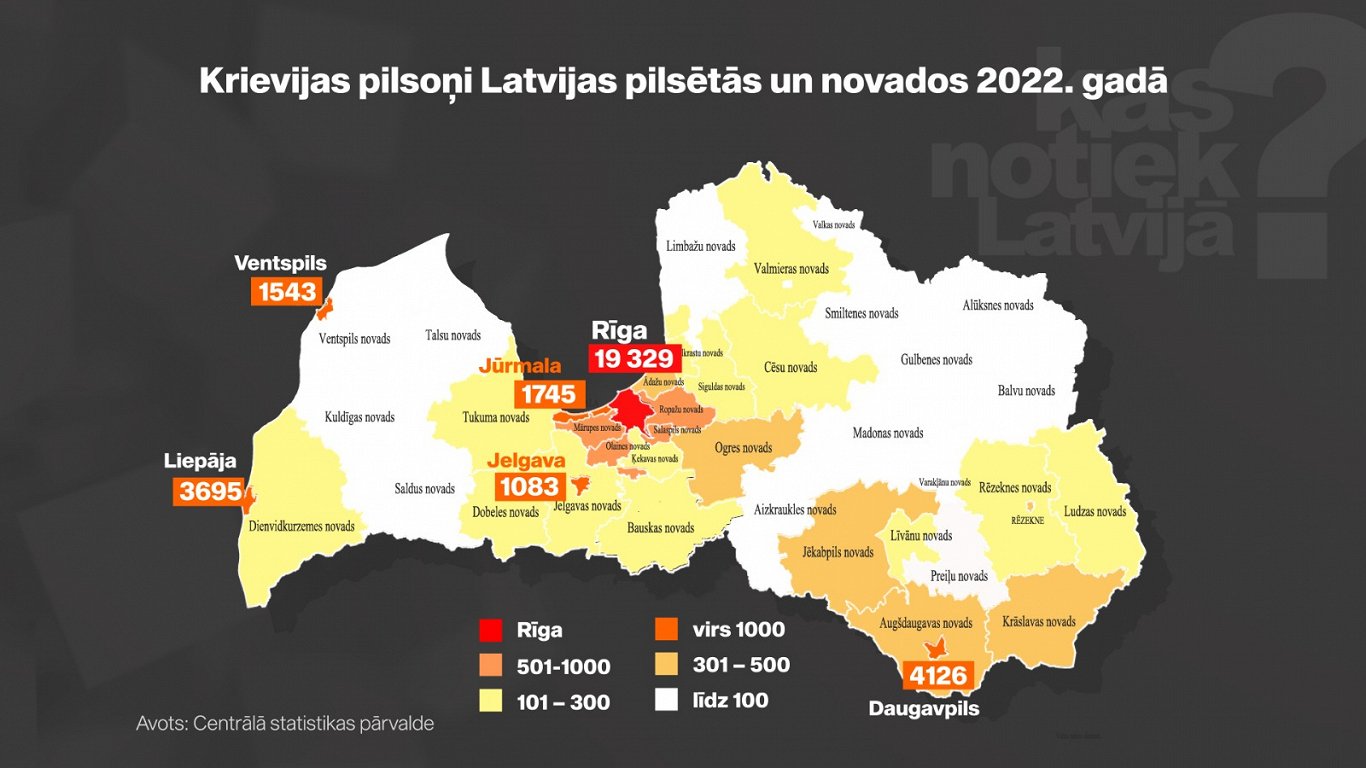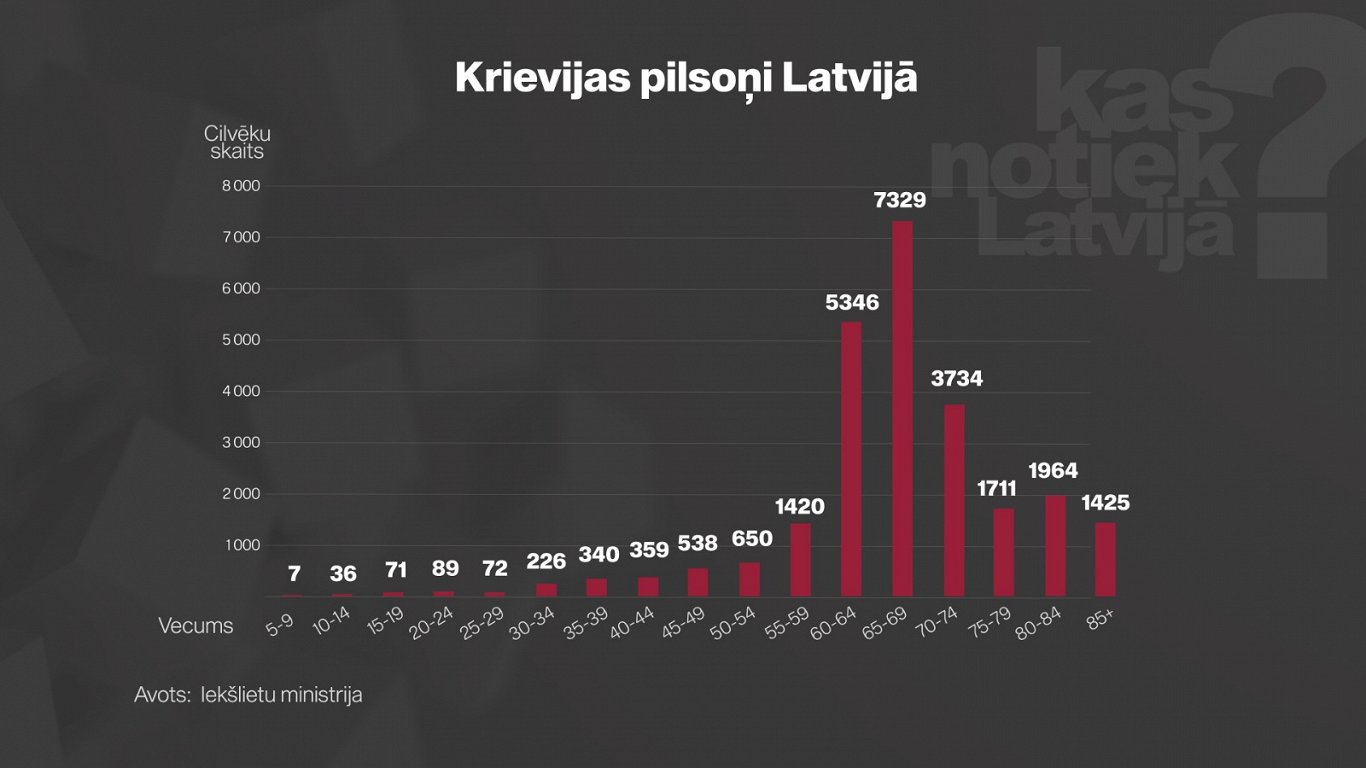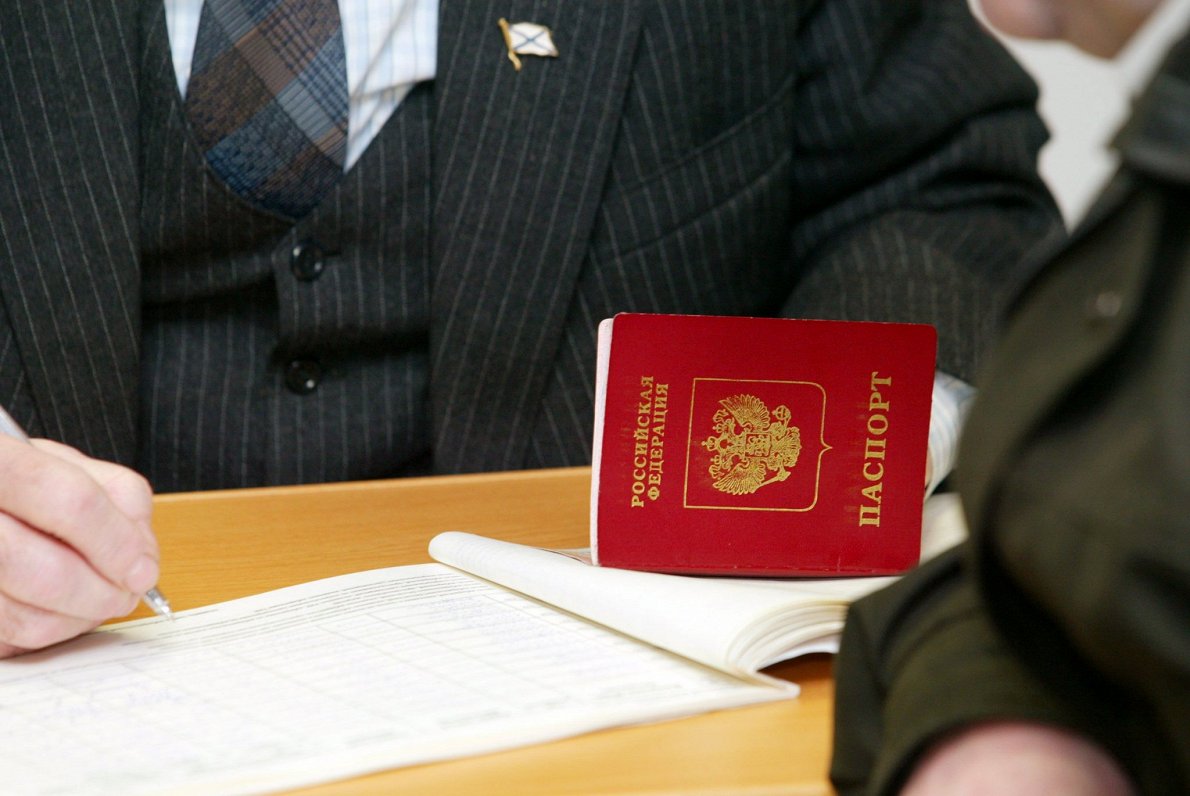In three major cities – Daugavpils, Liepāja and Rēzekne – the number of citizens of the Russian Federation reaches 5% of the total population, while in Jūrmala and the capital Rīga, 3% of the total population are Russian passport-holders, according to the data of the Central Statistics Office. The graphic below shows where the largest numbers of Russian citizens are located.

In these cities, Russian citizens have been able to live with little or no knowledge of the Latvian language for a long time, and in many cases their ability to communicate in the state language of Latvia is very weak, according to participants in the discussion.
But soon, thousands of Russian citizens who prefer to live in Latvia rather than Russia will have to demonstrate basic proficiency in Latvian in order to retain their right of residency.
Olga Petkeviča, from Daugavpils, who has campaigned to repeal the provisions of the Immigration Law, denied that the fear of or hostility toward the Latvian language was a factor. "I was at the market in Daugavpils today [and said] "I have lived here for fifty years, I am now retired, I am 65 years old. I open the book, learn five words, and in the morning I don't remember those five words."
According to her, at a recent session of the Saeima commission, the representative of the State Educational Content Center also said that quick language courses will not do much to help these seniors speak Latvian, because they need to be living in a Latvian environment. "There is no Latvian environment in Daugavpils for people aged fifty-plus. Also in other cities, where there are a large number of such residents... well, understand what this woman's communication bubble is... she goes to the market, talks to her friend, goes to the pharmacy. She does not hear that [Latvian] language. I admit that there are such people in Liepāja, as well as in Rēzekne," said Petkeviča.
Data show that the great majority of Russian citizens residing in Latvia are over 60 years of age (see graph below).

The fact that the environment or "informational bubble" plays an extremely important role in the acquisition of language skills was also confirmed by Latvian language course instructor Aleks Dobrovoļskis in the discussion:
"If a person does not communicate in Latvian on a daily basis, it will be difficult," he said. At the same time, he admitted that the Latvian language is more successfully learned by young people, while it can cause difficulties for older people.
Meanwhile, the senior researcher of the Baltic Institute of Social Sciences, Inese Šūpule, who has studied the integration of 'non-citizens' into the Latvian society, pointed although one of the motivations for accepting Russian citizenship was the possibility of early retirement and receiving a Russian pension, the choice in favor of Russian citizenship was more often made by non-citizens or citizens of Latvia whose knowledge of the Latvian language was very weak.
"When studying the choices of non-citizens, it can be seen in previous studies that this instrumental motivation really dominates here, but from the perspective of the Latvian state, it is still an expression of a position against the state. We cannot deny that," she said.
The fact that these people have chosen not to learn the Latvian language for many years can also be evaluated as their choice.
Ksenija Andrijanova, who recently acquired Latvian citizenship, said: "This is not so much a matter of principle about the language as it is a matter of security, because if a person really does not speak the national language, living in the country in the long term, you can also deduce what media he consumes. Of course, everyone has their own nuances. But I think that if a person has really lived here for a long time and does not speak Latvian, it also creates security risks."
Andrijanova suggested that failing a language test the first time should not become a reason to immediately cancel the residence permit of a particular Russian citizen. In her opinion, people who did not pass the test the first time should be provided with free language courses and given the opportunity to take the test again within a reasonable period of time.





























